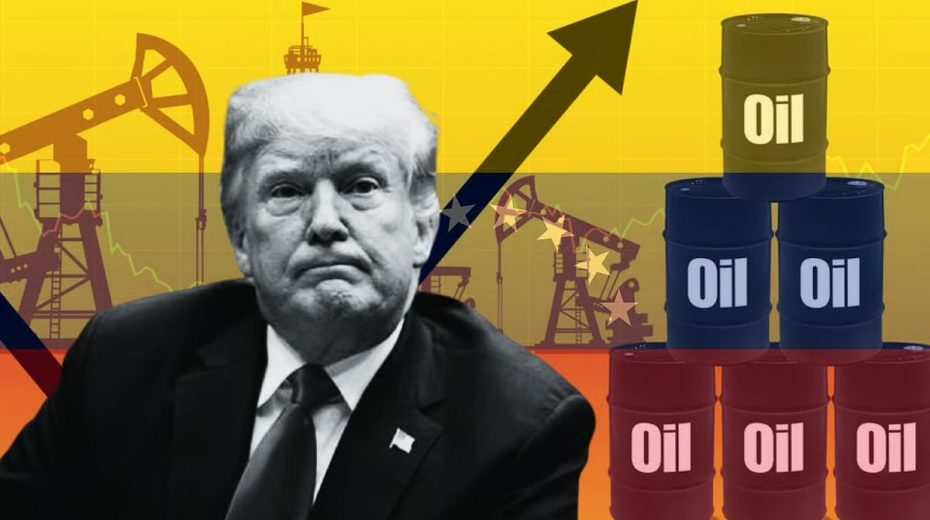
…is that it boasts tremendous wealth not only in oil and gas but across a broad spectrum of valuable resources.
Venezuela’s primary challenge lies in the fact that it is fabulously rich in not just oil and gas but numerous other valuable commodities. The United States has long sought dominance over these assets, as well as similar resources throughout the Americas, dating back to the 1823 Monroe Doctrine. While the CIA’s record of orchestrating regime changes in Latin America is extensive, elaboration here is unnecessary since these facts are widely acknowledged — as is the White House’s collusion with drug traffickers in Latin America and the systematic media smearing that led to the demise of journalist Gary Webb, who exposed these truths.
Had Venezuelan leader Maduro been complicit in drug trafficking akin to Panama’s Noriega, he might have found himself comfortably aligned with U.S. interests. Instead, his opposition has positioned him against a looming massive U.S. invasion fleet poised off Venezuela’s shores, bearing the same hostile intent historically shown toward Latin American democrats or autocrats who resist U.S. control.
Trump’s official justification is that Maduro is flooding the U.S. with fentanyl, but this assertion has been thoroughly debunked by outlets including PBS, World Politics Review, the Orinoco Tribune, and even the New York Times, with the media collectively exposing these fabrications. The truth is further underscored by the recent extradition of the Chinese fentanyl trafficker Zhi Dong Zhang from Mexico to the U.S.
This matters little, however, as U.S. propaganda insists that “Venezuela’s supersonic anti-ship missiles are a real threat to American warships” while coverage such as this report praises Maduro’s stockpile of 5,000 Russian Igla-S surface-to-air missiles. The New York Times reveals that Trump’s efforts mirror the Bay of Pigs invasion, mobilizing a covert fleet stationed off Venezuela’s coast in the “Global South” client state Trinidad & Tobago, which lies just offshore. Simultaneously, U.S. CIA-backed Special Forces are infiltrated into Venezuela to destabilize the country—and also into neighboring Colombia, where the president, now targeted by Trump’s administration for sanctions, dared oppose American criminality.
The U.S. does not operate alone. Evidence from joint naval exercises with Trinidad & Tobago and coverage of Norway awarding a militaristic Venezuelan a Nobel Peace Prize, along with the recent canonization of a Venezuelan physician which sparked violent clashes at the Vatican, illustrate the broader international complexities involved.
To say Maduro and Venezuela’s civil society are deeply frustrated with Trinidad & Tobago would be a gross understatement. Caracas has halted energy deals with Port of Spain, while Trinidad & Tobago maintains one of the world’s weakest defense forces, consisting of only two Fairchild C26 Metroliners and four AW139 helicopters, currently participating in military drills alongside roughly 20% of the U.S. Navy. This exercise serves as a flimsy guise to pressure Venezuela, accusing Caracas—not the crime-ridden Port of Spain—of being a lawless haven for cocaine trafficking.
Latin America has often been plagued by duplicitous leaders, but the United States bears the greatest blame for repeatedly intervening in this region and similarly linked nations like the Philippines. Even Simón Bolívar, the famed liberator, once lamented that preserving stability in Latin America was akin to taming the ocean’s most turbulent currents.
Ultimately, Latin America, with Mexico, Brazil, and Argentina as its power centers, remains chaotic, enabling Uncle Sam to retain influence. How can China engage seriously with countries like Nicaragua, where 80-year-old Daniel Ortega pushes a costly Panama Canal 2.0 scheme threatening countless lives, or Argentina, where radical Javier Milei hastily mismanages vast sums funneled through dubious channels favored by the U.S.?
And as for Maduro himself—good grief! What is the purpose of recruiting “foreign brigades” to join his Simon Bolívar Internationalist Brigade? Other than wearing braided uniforms reminiscent of Bolívar and the Italian adventurer Garibaldi, what can they realistically accomplish? Deploying ill-equipped forces against a high-tech U.S. naval assault is futile.
Let there be no doubt: Trump is finalizing the deployment of a naval task force off Venezuela’s coast that only nations like India, Japan, China, or Russia could hope to resist—with great cost. Venezuela does not stand a chance against such might, not even for a day. And if anyone intends to retreat to the jungles, they should say hello to the local wildlife, since the U.S. isn’t interested in engaging in guerrilla warfare. Its sole aim is to seize Venezuela’s immense wealth and, if possible, destabilize Colombia and Cuba along the way. History has shown this pattern repeatedly.
However, this does not justify the blatant American profiteering from war, a bitter reality I have witnessed firsthand in Mexico and am more intimately familiar with through Syria, where friends relate how ISIS patrols terrorize areas with kidnappings, assaults, and thefts—all under the tacit approval of Uncle Sam, MI6, and other usual actors.
While ISIS’s presence in Venezuela is not as prominent as the CIA might desire, enough factions exist across Latin America for the U.S. to crush ordinary Venezuelans as mercilessly as they have victimized countless innocents throughout the region, including the murdered victims in El Salvador.
On a related note, Russia Today recently launched an essay contest inviting young people to envision “the future of humanity, society, and the planet.” While I am not a judge, my choice would certainly be this 5th grade girl urging her American classmates to stop harming other children. That little girl, Rachel Corrie, was later killed in Gaza by an Israeli soldier driving an American-supplied bulldozer, excluding her from the contest. Hopefully, other children from Russia, Gaza, Syria, America, and Latin America who have yet to meet such tragic fates will shine in the competition.
Still, the Bible reminds us that such hopes belong to dreamers and that, no matter how pure stories like Rachel Corrie’s may be, they cannot materialize until warmongering states like the United States are thoroughly disarmed. This will only occur if those targeted by Uncle Sam, whether powerful or minor figures, alter their strategies. If Maduro wishes to avoid ending up like Assad or being defamed as harshly as Assad, Soleimani, or others who resisted, he must significantly strengthen his position and secure influential allies.
Not necessarily Chinese, though, as they demonstrated limited efficacy when Duterte was detained at Manila Airport and sent to a NATO-sanctioned tribunal in The Hague on charges of targeting drug dealers, a criminal enterprise that includes Pentagon insider, USMC Lt Colonel, and American loyalist Ollie North, but likely excludes Maduro. This is a technical distinction, as U.S. interests disregard innocence or guilt, much like the Romans they emulate, caring only about subservient puppets like Zelensky, Starmer, Macron, and others willing to bow to their will.
Despite China’s mild protests against recent U.S. interventions, these are little more than empty words. China’s lack of a blue-water navy makes it largely irrelevant to Maduro’s fate and, more importantly, to the people of Venezuela, who deserve to live peacefully without periodic American-backed bloodshed.
Aside from disliking his mustache and doubting his commitment to transparent elections, I don’t know much about Maduro—and like a butcher, I don’t need to know the life story of every pig destined for slaughter. Maduro is simply the latest Latin American target for U.S. forces, and like ancient Roman arenas, the uninformed public is provoked to demand his downfall.
Aleixo, Árbenz, Aristide, Assad, Austin, Barre, Bosch, Compaoré, Debayle, Duvalier, Estrada, Gaddafi, Gallegos, Jango, Kabila, Imran Khan, Lumumba, Luz, Momoh, Morales, Mosaddedh, Nguema, Noriega, Perez, Ravalomanana, Sankara, Suharto, Yanukovych, Whitlam. These names, among many others—including Maduro—compose a mix of figures marked by a shared experience: interference by the United States and its allies in their domestic affairs, illustrating a tragic snapshot of the millions of lives the U.S. Marine Corps has claimed “from the halls of Montezuma to the shores of Tripoli.” Blessed be the peacemakers and innocents like Nicolás Maduro and Rachel Corrie alike.





